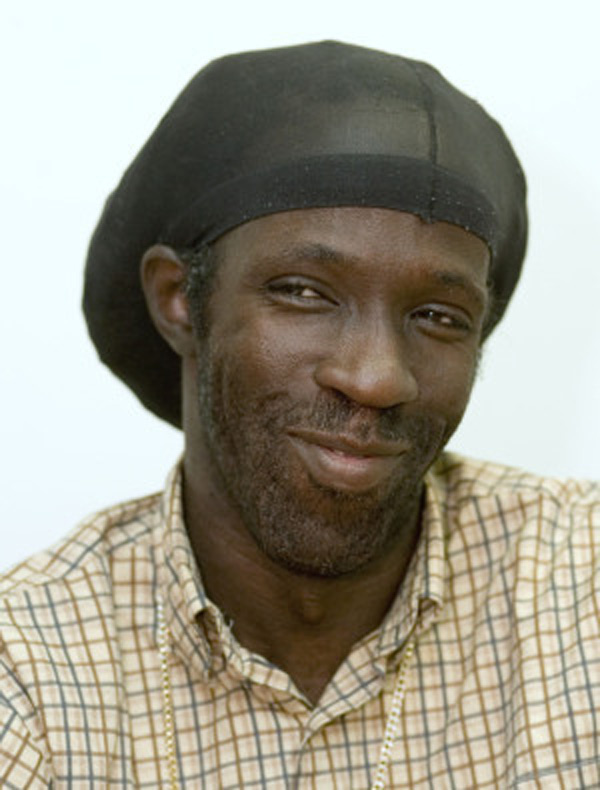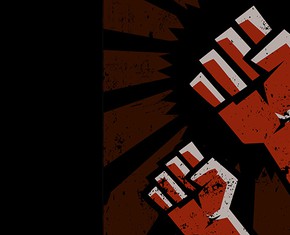The views expressed in our content reflect individual perspectives and do not represent the authoritative views of the Baha'i Faith.
Let’s say, just for fun, that tomorrow you win the lottery. Suddenly you’re a zillionaire. What would you do with your newfound wealth?
Many people fantasize about it—which of course sells lots of lottery tickets. But for those who actually win, things don’t always turn out positively. In fact, statistics show that six out of 10 people who win up to $10 million in lotteries declare bankruptcy in less than five years. The National Endowment for Financial Education says that 70% of all people who receive an unexpected financial windfall lose it all within a few years.

Abraham Shakespeare
So before you get too excited about winning the lottery, you should know Abraham Shakespeare’s story. Abraham, an illiterate Florida day laborer, won a $30 million lotto jackpot in 2006. He faced all kinds of demands and lawsuits from people he knew, and a large number of friends and family members began treating him like an ATM. Three years later, his new “girlfriend” murdered him for the money, and buried him in the backyard of a house she bought with funds she embezzled from his accounts. She is now serving a life term in prison. His brother told the BBC that before the murder, Abraham often said he deeply regretted winning. “I’d have been better off broke,” he always said. He was right.
Of course, that doesn’t happen to everyone. National Public Radio recently aired an interview with a $220 million lottery winner who approached his windfall in a completely different way. Brad Duke, who won in 2005, has since established a charitable foundation and started giving millions away to good causes.
It seems like most of the happy and successful winners manage to refrain from wild spending sprees on bling; instead, they often put their significant new wealth to good use charitably helping others. The Baha’i teachings definitely encourage that kind of responsible, selfless, other-directed motivation:
Man’s merit lieth in service and virtue and not in the pageantry of wealth and riches. – Baha’u’llah, Tablets of Baha’u’llah, p. 138.
…in the divine teachings equality is brought about through a ready willingness to share. It is commanded as regards wealth that the rich among the people, and the aristocrats should, by their own free will and for the sake of their own happiness, concern themselves with and care for the poor. This equality is the result of the lofty characteristics and noble attributes of mankind. – Abdu’l-Baha, Foundations of World Unity, p. 44.
“…by their own free will and for the sake of their own happiness,” Abdu’l-Baha advises us, the wealthy and the aristocratic should “concern themselves with and care for the poor.”
Isn’t that interesting? The Baha’i teachings don’t just say that the wealthy should care for the poor out of a sense of guilt, as a result of “noblesse oblige” or because of any laws that require them to do so. Instead, everyone can find their true merit, Baha’u’llah wrote, in “service and virtue and not in the pageantry of wealth and riches.”
Shall we unpack that concept?
The Baha’i teachings—and the teachings of every great Faith—say that wealth itself, and the material needs it can satisfy, will not ultimately make us happy:
Therefore, consider how base a nature it reveals in man that, notwithstanding the favors showered upon him by God, he should lower himself into the animal sphere, be wholly occupied with material needs, attached to this mortal realm, imagining that the greatest happiness is to attain wealth in this world. How purposeless! How debased is such a nature! – Abdu’l-Baha, The Promulgation of Universal Peace, p. 186.
What ultimately makes us happy is the love and kindness we’re able to generate in this material world. In that sense, the Baha’i teachings say, we should do our best to emulate those who have given and sacrificed the most for the highest possible goal:
Consider how the greatest men in the world—whether among prophets or philosophers—all have forfeited their own comfort, have sacrificed their own pleasure for the well-being of humanity. They have sacrificed their own lives for the body politic. They have sacrificed their own wealth for that of the general welfare. They have forfeited their own honor for the honor of mankind. Therefore it becomes evident that this is the highest attainment for the world of humanity. – Abdu’l-Baha, Foundations of World Unity, pp. 42-43.
So if you do win the lottery, or even if you earn your wealth the old-fashioned way, remember:
…the happiness and greatness, the rank and station, the pleasure and peace, of an individual have never consisted in his personal wealth, but rather in his excellent character, his high resolve, the breadth of his learning, and his ability to solve difficult problems. – Abdu’l-Baha, The Secret of Divine Civilization, pp. 23-24.
Baha’is believe that one of humanity’s most difficult problems—the persistent, crushing, murderous burden of poverty, hunger and privation—can only be permanently solved when the wealthy voluntarily resolve to share their good fortune. In the next essay in this series, we’ll take a look at how that happened when America’s wealthiest man met Abdu’l-Baha.
















Comments
Sign in or create an account
Continue with Googleor